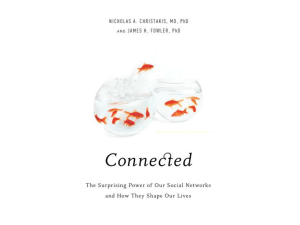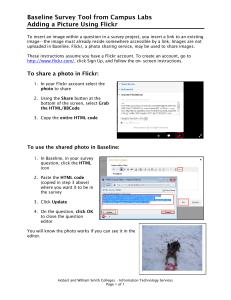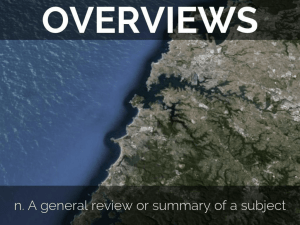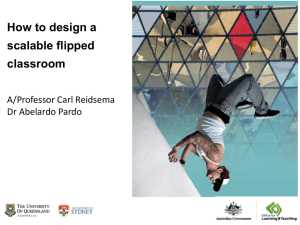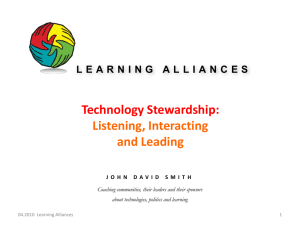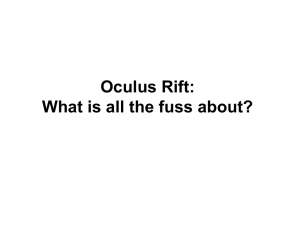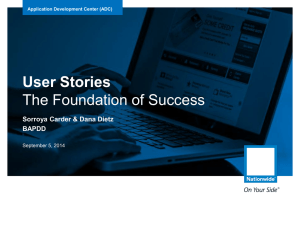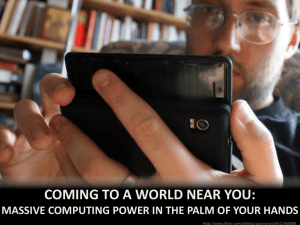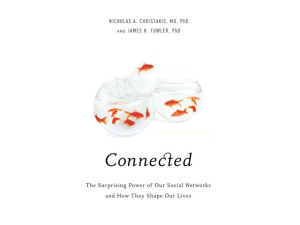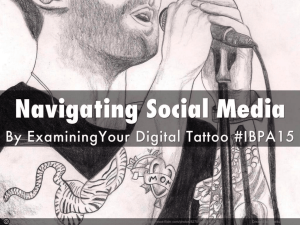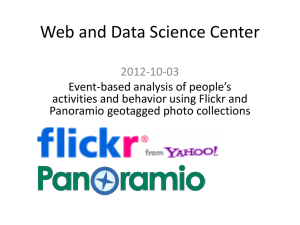Connected Chapter 7
advertisement
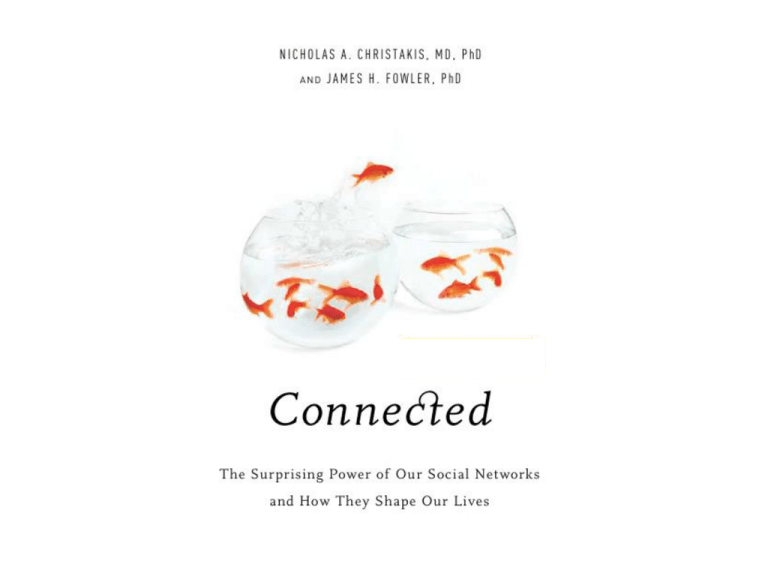
Chapter 7 It’s In Our Nature It’s In Our Nature Social Networks have recently become more visible with the creation of so many online social networks, but they have always existed and affected the way people live and interact! You can watch social networks form on reality TV shows like Survivor. Photo by cbs.com How Social Networks Form The structure of a social network matches the needs of its community. A burning house would hopefully bring about a… • cooperative • supportive • stable social network structure While an offensive football team might form an… • aggressive • competitive • changing social network structure Photos by Justin S. Campbell and Vlastula, Flickr Cooperation Cooperation and altruism are not evolutionarily practical. Survival of the fittest, not the most helpful. Evolutionary models of cooperation include for 4 types of people: •Loners •Cooperators •Free-Riders •Punishers Photo by Dave Traynor, * Photos by Chris M *and Inkyhack, Flickr Homo economicus This tongue-in-cheek term means “Economic Man.” It characterizes humans as selfish and rational. If people where really like this, they would not share! Homo dictyous (literally “network man”) better describes how people really are. Photo by kansasexplorer 3128, Flickr The Ultimatatum Game 1. You are given $10 to split with another person. 2. If he or she accepts your split, you each get your part. 3. If he or she rejects your offer, you both get nothing. Photo by YoavShapira, Flickr Theoretically, you should accept any split (something is better than nothing!). But most offers under $2 are rejected. The Ultimatum Game The Ultimatum game only matches economic predictions (that player 1 takes as much as possible and player 2 accepts anything) within fairly isolated cultures. Photo by wwarby, Flickr The Dictator Game A new game was created: The Dictator Game The Rules: 1. You have $10. 2. You make an offer to split it however you want with another person. 3. They MUST accept. 4. You both get to keep the money. In this game, you would expect player 1 to keep all $10, but most of the time he gave player 2 some! Photo by UnorthodoxY, Flickr Networks Are in Our Genes Nurture AND Nature are responsible for human sociability. Twin studies show that genes influence our social networks Photos by Oude School, Flickr Networks Are in Our Genes Genes account for 46% of how popular you are! Genes affect the probability that two of your friends are also friends with each other. Photos by djwudi, Flickr Networks Are in Our Genes Genes affect our emotions. If you are predisposed by your genes to feel lonely, you might become disconnected from your network. Photos by peter.ca, Flickr Networks Are in Our Genes The ability to understand and work within social networks is even programmed into our anatomy The complexity of social networks could account for the large size of the human brain. Photos by EUSKALANATO, Flickr Networks Are in Our Genes Human brains are larger than monkey brains and human groups are larger than monkey groups. Monkeys groom each other one at a time, but humans can talk To four people at once. It seems the size of the brain limits the size of the group. Most natural human groups are capped at about 150 People (Dunbar’s number). Photos by thsutton, Flickr
